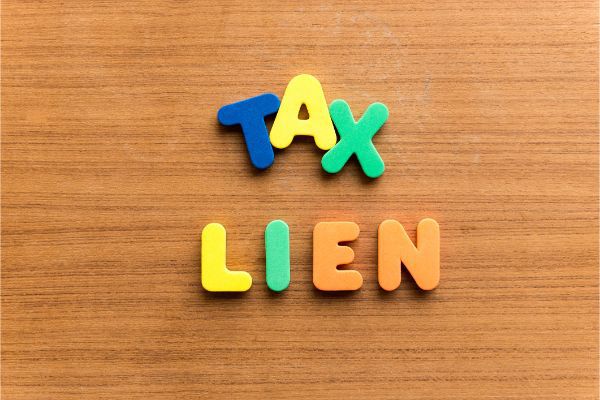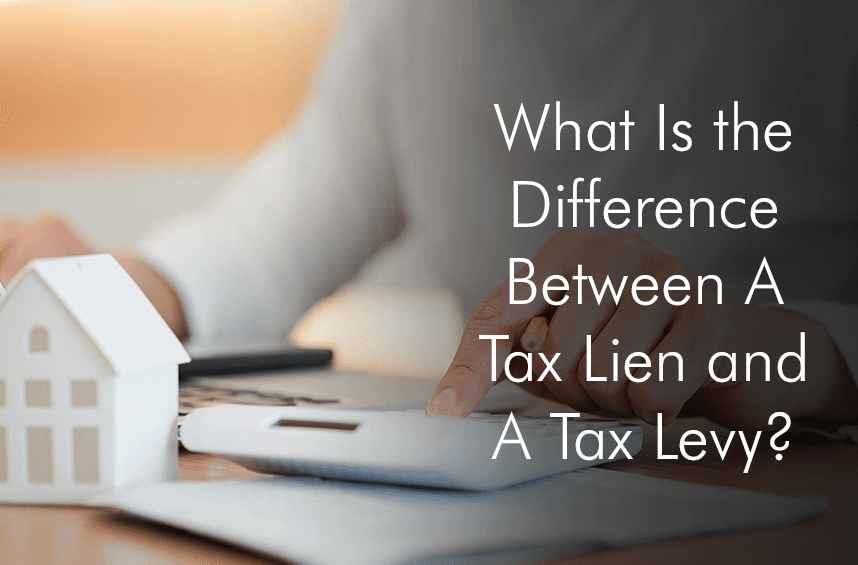All Categories
Featured
Table of Contents
Tax lien investing can provide your portfolio direct exposure to genuine estate all without needing to in fact own residential property. Specialists, nevertheless, claim the procedure is made complex and caution that amateur financiers can conveniently obtain burned. Right here's every little thing you need to find out about spending in a tax obligation lien certificate, consisting of how it works and the risks included.
The notice typically comes prior to harsher actions, such as a tax obligation levy, where the Internal Earnings Solution (IRS) or neighborhood or metropolitan governments can really seize somebody's home to recuperate the debt. A tax obligation lien certification is developed when a home proprietor has actually stopped working to pay their taxes and the neighborhood government problems a tax obligation lien.
Tax lien certificates are usually auctioned off to investors aiming to revenue. To recover the overdue tax obligation dollars, communities can then offer the tax obligation lien certificate to personal investors, who deal with the tax costs for the right to accumulate that cash, plus rate of interest, from the homeowner when they at some point repay their equilibrium.
Is Buying Tax Liens A Good Investment
enable the transfer or assignment of overdue property tax liens to the personal market, according to the National Tax Obligation Lien Organization, a not-for-profit that stands for governments, institutional tax obligation lien investors and servicers. Right here's what the process appears like. Tax obligation lien investors need to bid for the certification in a public auction, and exactly how that procedure functions depends upon the specific town.
Contact tax officials in your area to make inquiries just how those delinquent tax obligations are accumulated. Public auctions can be on-line or in individual. Occasionally winning quotes most likely to the capitalist prepared to pay the lowest rates of interest, in an approach referred to as "bidding down the rates of interest." The community develops an optimum price, and the bidder using the cheapest rates of interest under that maximum wins the public auction.
Various other winning proposals go to those that pay the highest cash quantity, or costs, over the lien quantity. What takes place next for capitalists isn't something that takes place on a stock market. The winning bidder has to pay the entire tax expense, consisting of the overdue debt, rate of interest and fines. The financier has to wait until the property proprietors pay back their entire equilibrium unless they do not.
While some capitalists can be rewarded, others may be captured in the crossfire of difficult regulations and technicalities, which in the worst of circumstances can bring about hefty losses. From a simple revenue point ofview, a lot of investors make their money based on the tax obligation lien's rate of interest. Rates of interest differ and depend on the jurisdiction or the state.
Revenues, nevertheless, don't always total up to yields that high throughout the bidding process. In the end, the majority of tax liens purchased at public auction are cost rates between 3 percent and 7 percent nationally, according to Brad Westover, executive director of the National Tax Lien Association. Before retiring, Richard Rampell, formerly the primary exec of Rampell & Rampell, a bookkeeping firm in Palm Coastline, Florida, experienced this firsthand.
Tax Liens Investing
In the beginning, the companions did well. However after that big institutional investors, consisting of banks, hedge funds and pension funds, went after those greater yields in public auctions around the country. The bigger financiers assisted bid down rate of interest rates, so Rampell's group wasn't making significant cash any longer on liens. "At the end, we weren't doing a lot better than a CD," he states - investing in secured tax lien certificates.
That hardly ever occurs: The taxes are typically paid before the redemption date. Liens likewise are first in line for settlement, also before home loans. However, tax liens have an expiry date, and a lienholder's right to seize on the property or to accumulate their investment runs out at the exact same time as the lien.
"Sometimes it's 6 months after the redemption period," Musa states. "Don't assume you can simply purchase and fail to remember about it." Private financiers who are thinking about investments in tax obligation liens should, most importantly, do their research. Experts suggest preventing properties with ecological damages, such as one where a gas station dumped dangerous material.
Investing In Tax Liens
"You should truly recognize what you're getting," says Richard Zimmerman, a companion at Berdon LLP, an audit company in New york city City. "Know what the building is, the area and worths, so you don't purchase a lien that you won't have the ability to accumulate." Potential investors ought to also inspect out the residential property and all liens versus it, in addition to current tax obligation sales and list price of comparable buildings.
"People get a listing of residential properties and do their due diligence weeks before a sale," Musa states. "Fifty percent the properties on the listing might be gone because the taxes obtain paid.
How To Invest In Tax Liens Online

Westover claims 80 percent of tax lien certifications are sold to members of the NTLA, and the company can commonly match up NTLA members with the right institutional capitalists. That could make managing the process less complicated, specifically for a beginner. While tax lien financial investments can offer a charitable return, recognize the small print, information and policies.
"Yet it's made complex. You need to comprehend the details." Bankrate's added to an update of this story.
Residential or commercial property tax obligation liens are an investment particular niche that is overlooked by many investors. Acquiring tax liens can be a financially rewarding though reasonably danger for those who are educated regarding property. When people or organizations stop working to pay their residential property taxes, the towns or other federal government bodies that are owed those taxes place liens versus the residential properties.
What Is Tax Lien Investing
These claims on security are additionally exchanged amongst financiers that really hope to produce above-average returns. Via this process, the municipality gets its tax obligations and the financier obtains the right to accumulate the amount due plus passion from the debtor. The process hardly ever finishes with the investor seizing ownership of the home.
Liens are sold at public auctions that sometimes entail bidding battles. If you require to foreclose, there may be other liens against the property that maintain you from taking ownership. If you get the building, there might be unforeseen expenses such as repair services and even forcing out the present owners. You can also invest indirectly through building lien funds.
It successfully binds the property and prevents its sale up until the proprietor pays the tax obligations owed or the property is confiscated by the lender. As an example, when a landowner or homeowner falls short to pay the taxes on their residential property, the city or region in which the residential or commercial property lies has the authority to position a lien on the property.
Residential property with a lien connected to it can not be offered or refinanced until the taxes are paid and the lien is eliminated. When a lien is provided, a tax obligation lien certification is produced by the district that mirrors the amount owed on the residential or commercial property plus any kind of rate of interest or penalties due.

It's estimated that an added $328 billion of property taxes was analyzed across the united state in 2021. The pattern proceeds. Tax obligations on single-family homes were approximated to climb approximately 3.6% in 2022, to a total amount of $339.8 billion, and by 6.9% in 2023, to $363.3 billion. It's hard to evaluate nationwide real estate tax lien numbers.
Table of Contents
Latest Posts
Delinquent Tax Payments
Delinquent Tax List
Buy House Delinquent Tax Sale
More
Latest Posts
Delinquent Tax Payments
Delinquent Tax List
Buy House Delinquent Tax Sale